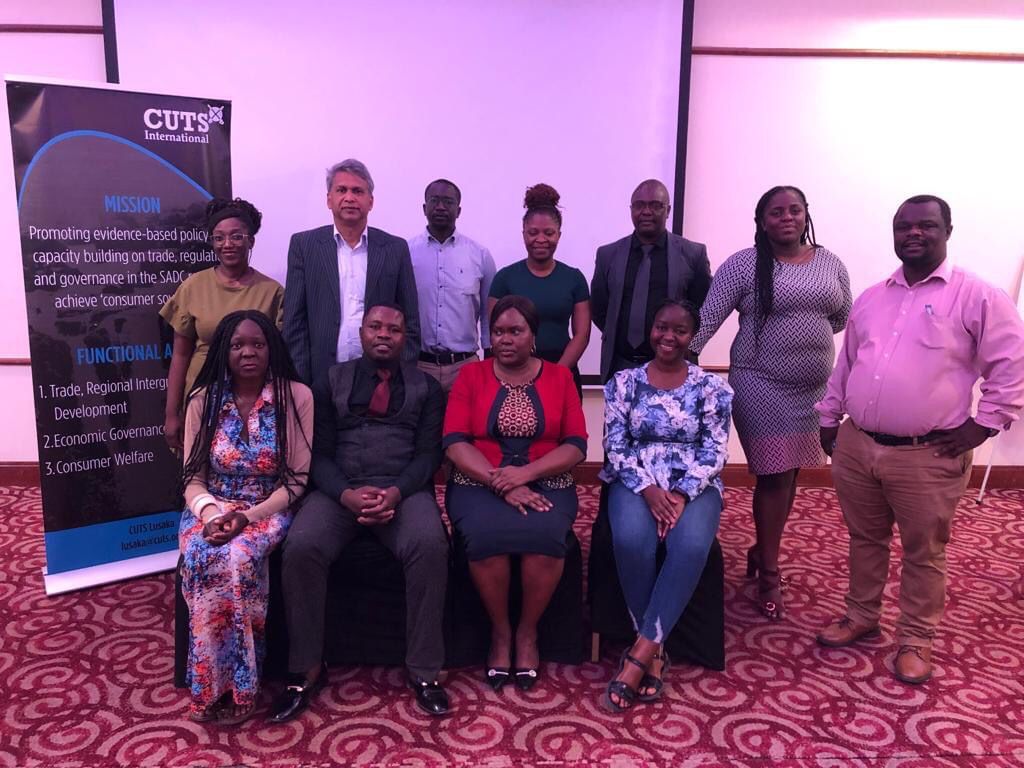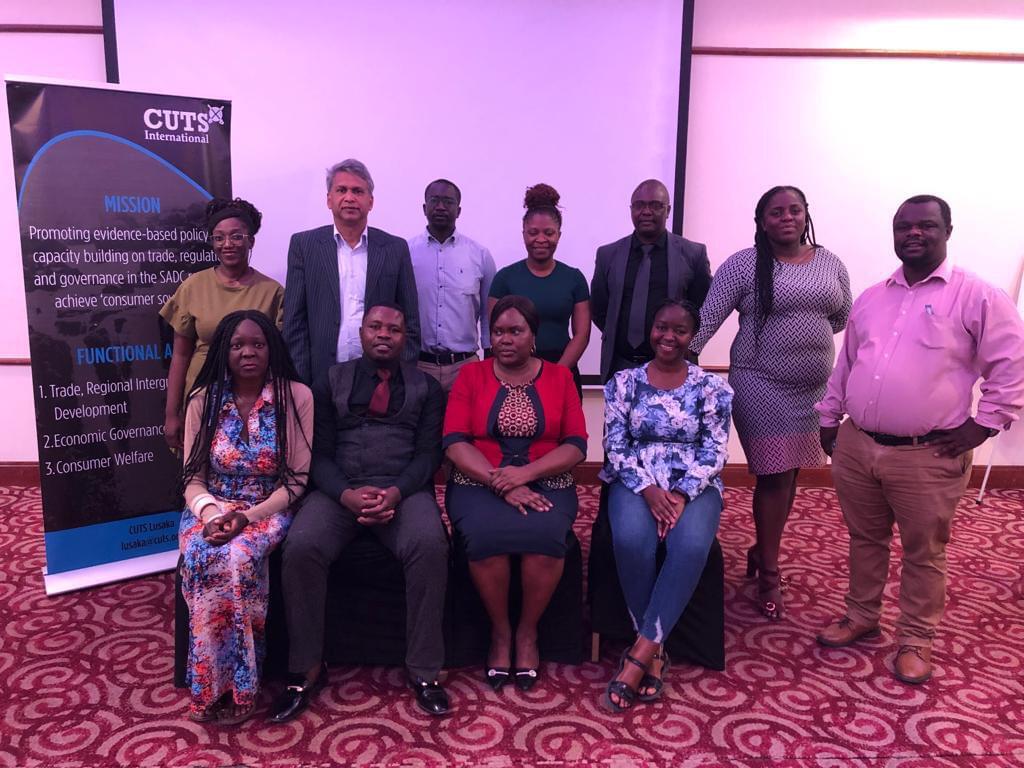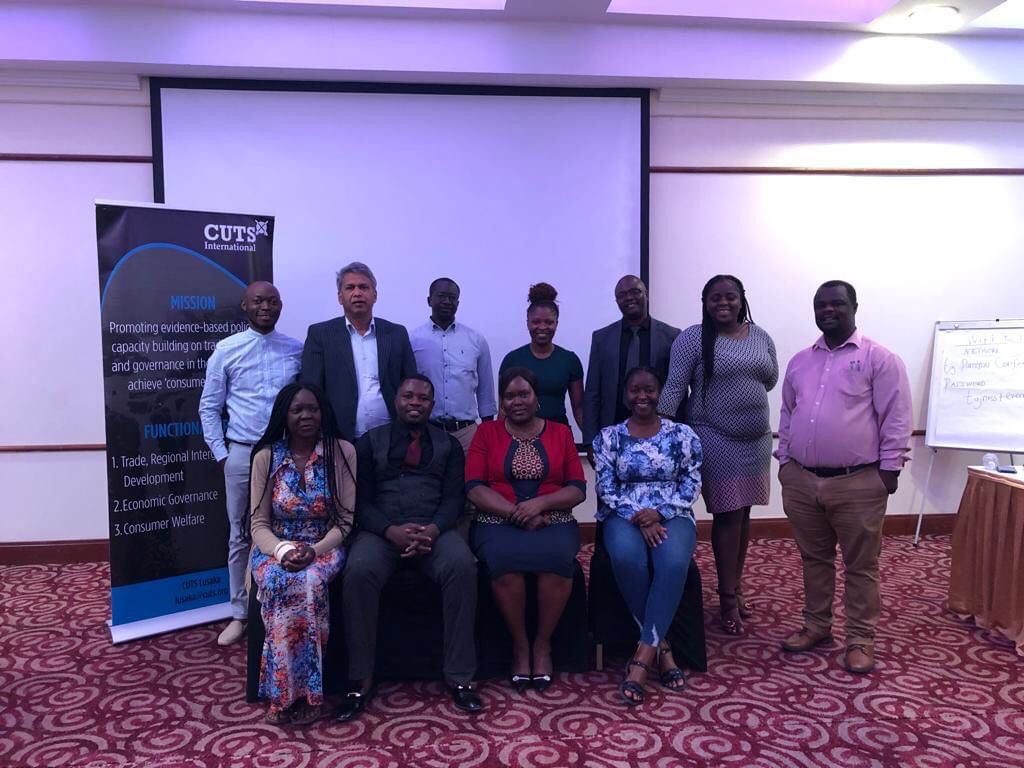Joint Civil Society Organisation (CSO) Media Statement on the International Monetary Fund (IMF) Programme & Debt Restructuring
Notice: Undefined index: catFilterList in /home/zambi/public_html/wp-content/plugins/wp-likes/api.php on line 243

Joint Civil Society Organisation (CSO) Media Statement on the International Monetary Fund (IMF) Programme & Debt Restructuring
Joint Civil Society Organisation (CSO) Media Statement on the International Monetary Fund (IMF) Programme & Debt Restructuring
The Consumer Unity and Trust Society (CUTS), on Tuesday, 20th September 2022, held a Civil Society Organisation (CSO) training aimed at building capacities of the organisations to analyse the International Monetary Fund (IMF) programme and Zambia’s debt restructuring strategy.
The training was officiated by CUTS International, Lusaka Board Chairperson, Mr. Thula Kaira. In his opening remarks, Mr. Kaira spoke on the IMF programme, highlighting that this is based on Zambia’s home grown economic reform plan that aims to restore macroeconomic stability and foster higher, more resilient and inclusive growth. He alluded to the current public debt situation, as the motivation behind CUTS actively engaging in research and advocacy around Zambia’s public debt situation through the “Strengthening Civil Society Advocacy for Accountability in Government Debt Financing” project.
The training was attended by representatives of various CSOs who deliberated on the different issues surrounding debt sustainability, prudent debt management and the importance of an access to information law in the pursuit of the aforementioned. The participants sought to analyse and discuss the IMF programme and what a debt restructuring exercise might look like for Zambia and how this would require strengthened legislation that facilitated a transparent sharing of information.

Joint Civil Society Organisation (CSO) during an International Monetary Fund (IMF) Programme & Debt Restructuring training
Having secured the IMF programme approval, Zambia can now confidently approach the creditors and ask them to restructure based on maturities, interest rates, haircuts and coupon adjustments. Given the diversity of Zambia’s creditors, CSOs are of the view that a strong strategy is required to get the most out of our negotiations with the Official Creditors Committees and further to this, here below are a number of points that CSOs would like to recommend for consideration in the formulation of this strategy:
(a) Clarity on the terms to be used by the Paris Club in restructuring Zambia’s debt: this should include deferments of up to 40 years on Official Development Assistance (ODA) and 67 years on non-Official Development Assistance (non-ODA), with a possibility of debt forgiveness extending to 90%. Paris terms influence and affect other restructuring, given the effect of Comparability of Treatment and Pari Passu considerations towards commercial creditors. Even though the G20 Common Framework will guide Zambia’s debt restructuring, the IMF/Paris Club legal regime is such that its terms, arrived at on priority of payment arrangements, will be the basis upon which the G20 and other commercial creditors’ restructuring will be carried out. A favourable negotiation with the Paris Club will guarantee favourable outcomes with other creditors for Zambia as it formulates its debt restructuring strategy based on the G20 Common Framework.

Joint Civil Society Organisation (CSO) during an International Monetary Fund (IMF) Programme & Debt Restructuring training
(b) Clarity on the amount of debt to be restructured to reach practical debt sustainability levels. The touted $9.8 billion seems to fall far short of a realistic target, given that the total debt burden for Zambia hovers around $32 billion, if the domestic debt is included.
(c) Clarity on the kinds of carrots, sticks and sweeteners that might be employed to limit the number of possible holdouts and free riders. If Zambia does not bring 90% of the creditors to the negotiating table, holdouts could scupper the whole process, leading to aggressive behaviours from vultures and hedge funds. The consequences of litigation at this level can only be contemplated with a sense of distress.
(d) Clarity on diplomatic and political strategies to be used particularly with the various shades of Chinese debt. China holds about $5.6 billion of bilateral debt, while a sizable portion of commercial debt covering almost 16% of total debt is held by Chinese private banks. There is a need to engage China diplomatically, politically and amicably, given the rich history that exists between Zambia and China.
(e) Publishing a timeline of debt restructuring for the benefit of citizens to follow and to in-put. There is a lot of information that is materially non-price sensitive, and that needs to be brought out into the public domain. Hiding information and omitting disclosures only breeds unhealthy suspicion. The ball is squarely in the court of the Ministry of Finance to lead the way in public disclosure of information.
(f) Going forward, amending the Public Debt Management Act 2022 to include provisions relating to Collective Agreement Clauses (CACs) and to priority of payments addressing excluded claims.
Lastly, we wish to thank all our partners in particular, Zambians and all people of goodwill in general, for their cooperation and their great work in trying to assist our country to find solutions to the problem of debt sustainability.

Joint Civil Society Organisation (CSO) during an International Monetary Fund (IMF) Programme & Debt Restructuring training























